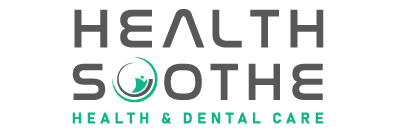Share this post
1)What is collagen?
Collagen is the protein that forms connective fibers in tissues such as skin, ligaments, cartilage, bones, and teeth. Collagen also acts as a kind of intracellular “glue” that gives support, shape, and bulk of blood vessels, bones, and organs such as the heart, kidneys, and liver. Collagen fibers keep bones and blood vessels strong and help to anchor our teeth to our gums.
Collagen is also required for the repair of blood vessels, bruises, and broken bones. As the most abundant protein in the body, collagen accounts for more mass than all the other proteins put together. There are actually 14 types of collagen in our body.
2) How do we make strong collagen?
To make strong collagen for healthy and glowing skin and clean arteries it is necessary to have ample supplies of vitamin C and two amino acids, lysine, and proline. Proline can be made from other amino acids so the two key components are C and lysine. If you have enough C and lysine you will make ample amounts of procollagen that then gets converted to the 14 types of collagen and enhances your skin and appearance.
3) What secrets are there about your skin?
The secret that few people know is that all animals manufacture large amounts of vitamin C except for 4 animals. Humans are one of the only 4 animals that have lost all ability to convert glucose to vitamin C. Humans lost this ability tens of millions of years ago along with sub-human primates, guinea pigs, and fruit bats. Our dietary vitamin C is the only source we have to make healthy collagen for skin and heart health. An animal like a goat may make 5–10 grams (5,000 to 10,000 mg) of vitamin C daily.
Our government recommends that we ingest only 60–90 mg of vitamin C daily. Why is this so? The experience hundreds of years ago with sailors dying of burst blood vessels, known as scurvy, demonstrated that only a small amount of vitamin C was required to prevent full-blown scurvy. But is it enough to achieve optimal health and glowing skin? Indeed, it is not.
5) There is new and exciting medical evidence that damage to arteries resulting in plaque and blockage is due to deficient vitamin C intake combined with a genetic excess of a cholesterol sub-particle called lipoprotein a.
So what can I do to have glowing skin and strong arteries?
Soy products, such as tofu, tempeh, and soybean flour are also good options for vegetarians. One-half cup of firm tofu provides 582 milligrams of lysine. Nuts and brewer’s yeast also contain lysine. One-half cup of dry roasted almonds contains 821 milligrams of lysine.
Vitamin C is easy to find in plant-based sources.
A good goal is to get 2–3 grams (2–3,000 mg a day). Citrus fruits (orange, grapefruit, lime, and lemon) are excellent sources of vitamin C. Many non-citrus fruits are highly rated sources, as well. Papaya, strawberries, pineapple, kiwifruit, cantaloupe, and raspberries are also excellent vitamin C sources. Cranberries, blueberries, and watermelon are examples of very good sources, while apples, pears, and bananas are in a good category.

Isreal olabanji a dental assistant and public health professionals and has years of experience in assisting the dentist with all sorts of dental issues.
We regularly post timely and trustworthy medical information and news on Fitness, Dental care, Recipes, Child health, obstetrics, and more.
